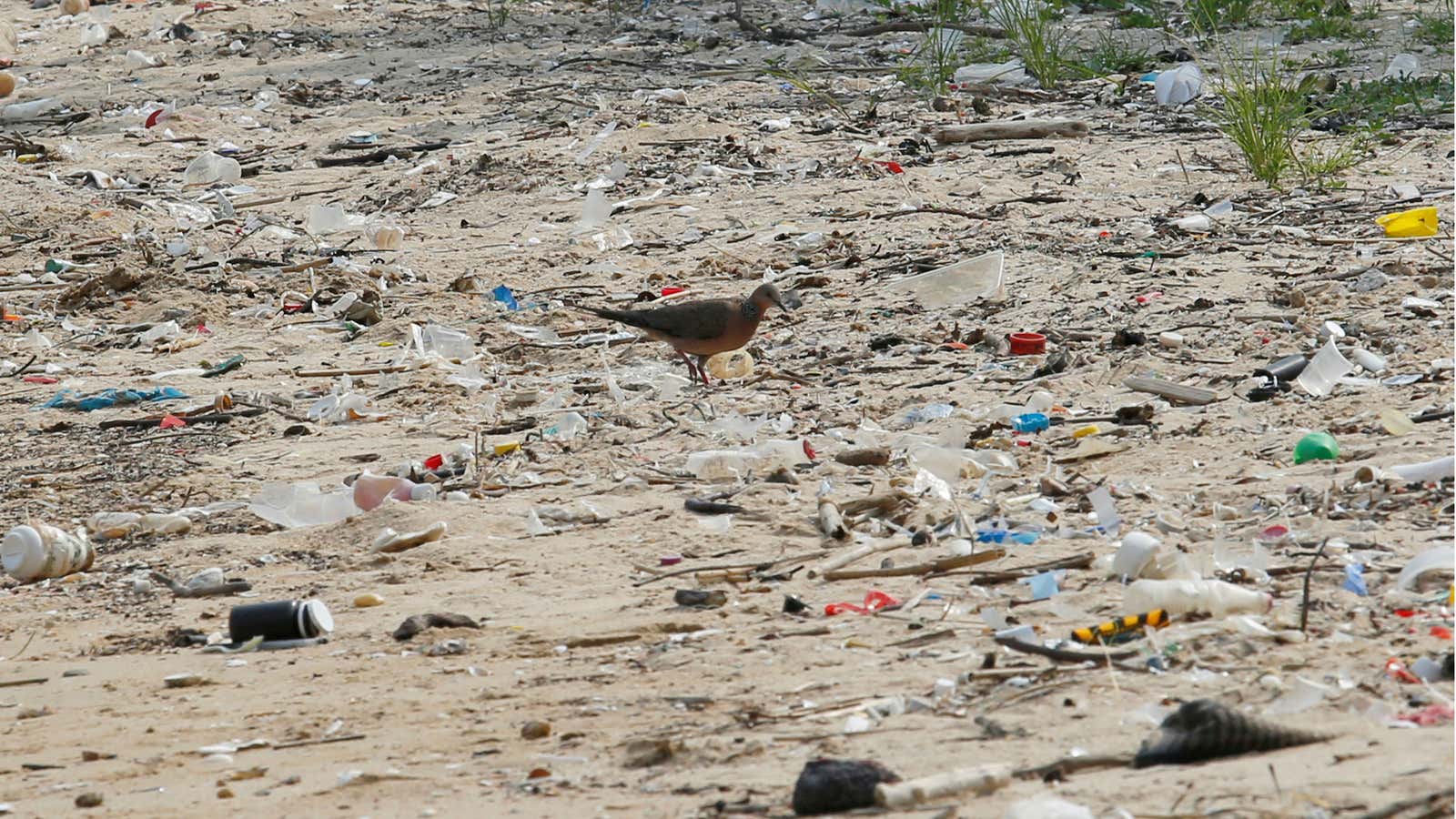Seabirds like petrels and albatross don’t have the best diet.
Normally, they feast on coastal sea dwellers like krill, shrimp, and fish that swim close to the surface of the water. But as beaches all over the world have become littered with plastic bottles and containers they’ve started eating that too—so much so that the overwhelming majority of them will have the stuff in their stomachs by 2050. Plastic is toxic to many animals, including birds, and remains intact in their tummies for years.
It’s not that the birds are just eating anything they see; for seabirds who hunt, plastic debris in the sea sends out odors that acts like a food flare. On Nov. 9, researchers from the University of California Davis (UC Davis) published findings in Science Advances showing the algae that coats plastic marine litter gives off the same smell that triggers seabirds to look for food.
The problem results from the food chain. Algae grow on any surface they can find as they float in the water; plastic litter is a perfect home. When krill eat algae they find bobbing up and down on plastic, the algae release a chemical called dimethylsulfide (DMS). “The algae are sort of crying out, saying ‘Oh my gosh, we’re being eaten and can someone please help me,'” Matthew Savoca, an ecology graduate student at UC Davis and lead author of the paper, told NPR. This chemical is responsible for that ocean smell humans find calming, but also signals to birds with good senses of smell that krill are in the area. As a result, these birds mistakenly eat plastic instead.
For their work, the researchers attached mesh bags of plastic beads made from the same material as common litter onto buoys in Monterey and Bodega Bay off the California coast. After three weeks, they took the beads back to UC Davis and had them analyzed for a chemical smell signature. As they suspected, DMS-producing algae had left their smelly mark on the beads.
The work suggests that other animals that hunt by smell—like sea turtles or penguins—might be similarly tricked into eating plastic through similar mechanisms. “Animals usually have a reason for the decisions they make,” Savoca said in a statement.
